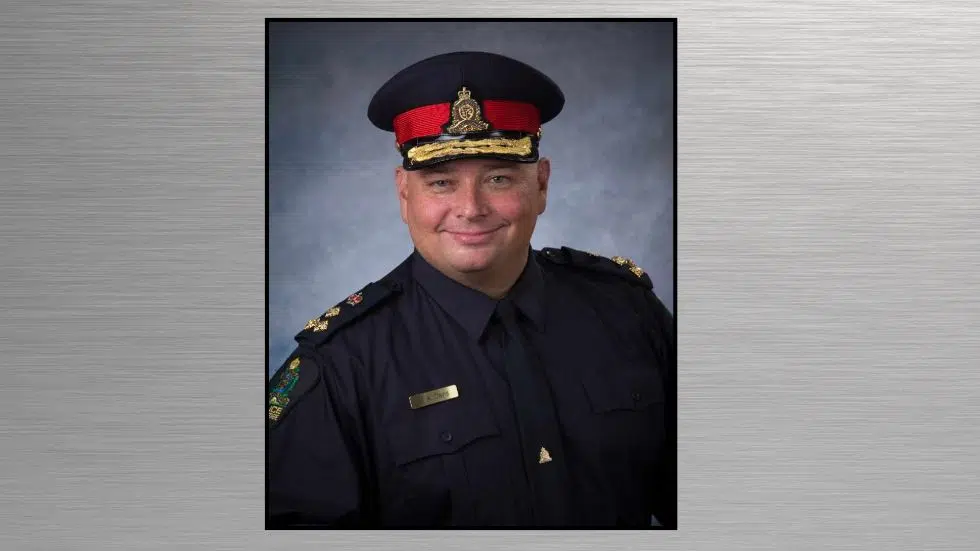
Police chief shares his thoughts on closing the Aboriginal engagement gap
LETHBRIDGE – Aboriginal engagement is close to the Lethbridge Police Chief’s heart, but he’s aware that a lot of work is still to come.
Chief Rob Davis grew up on, and eventually helped police, Ontario’s Six Nations of the Grand River reserve. Since then, he’s spent the majority of his more than 20-year long career in and around native communities, and even watched the early-90’s Oka crisis and Royal Commission on Aboriginal Peoples unfold.
Through his experiences, Davis recognized a trend across Canadian communities when it comes to FNMI engagement. He explained that there are years worth of recommendations and inquiries from organizations like the Truth and Reconciliation Commission, yet it can be frustrating to see that some places are still stuck in the conversation stage.
“Here in Lethbridge, the Round Street report came out showing that 16-per cent of our population in the city is Aboriginal, and we know that number is going to go up,” Davis said in an interview with Lethbridge News Now.
“We know there’s a migration from on reserve to urban centres… The Oppal inquiry clearly identified there’s a need for police commissions to represent the community they serve… It’s a no-brainer that we need to move in that direction.”
He added that it’s particularly difficult to keep Lethbridge residents engaged, pointing to some past engagement and Aboriginal-specific positions that met their demise when people would simply stop showing up. For Davis, it comes down to relying on his peer’s experiences to figure out why that issue remains, and how to come up with contingency plans in the case that people do need to step down from such vital positions.
Funding seems to be another road block, according to Davis. Before he became Lethbridge’s Police Chief in 2015, the Aboriginal Council of Lethbridge was the “go-to group for any FNMI issues.” Unfortunately, they lost significant federal funding in 2014, and Davis says that gap hasn’t been successfully filled since.
“If we rely on outside funding, whether it be federal or provincial, in my opinion, we’re always at the whims of an external body. If we step up as a commission or a council or a city and create a mechanism, we know it will be here and not relying on external funding.”
That said, Davis appreciates the hard work local organizations, including city council and the Coalition of Municipalities Against Racism and Discrimination (CMARD), already put in to make FNMI engagement a top priority.
He stressed that strong Aboriginal relationships aren’t something that solely benefit local police services, but impact the community as a whole.
“[It] really tears down walls, barriers, misconceptions… There’s a lot of nuances that unless you have a conversation with someone from that background, it can be open for interpretation.
“Those types of things, it fleshes those out, right into body language and family dynamics and all those things you can’t learn in a textbook,” he continued. “Having that voice on the commission will help educate the commission, thereby educating the police service and moving us in a direction where we’re truly inclusive.”
While he doesn’t know the ultimate solution, Davis made it clear that movements like this need to be sincere on all levels, and having a great working relationship with the neighbouring Blood Tribe Police only comes as a bigger advantage. He recognizes there may be push back from those that believe crime and punishment are the only answer, but truly believes that open minded communities are the best way to close the engagement gap.


